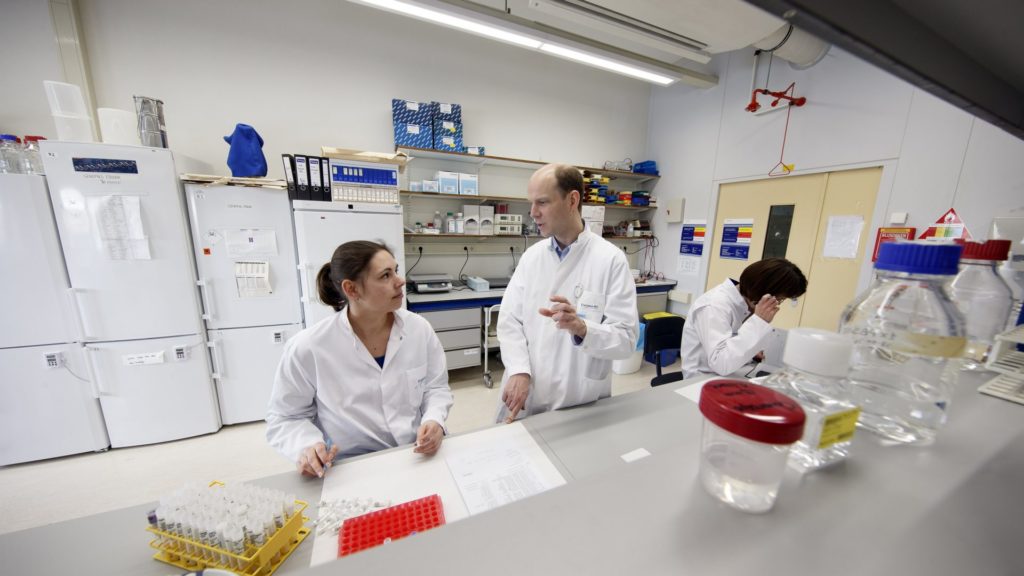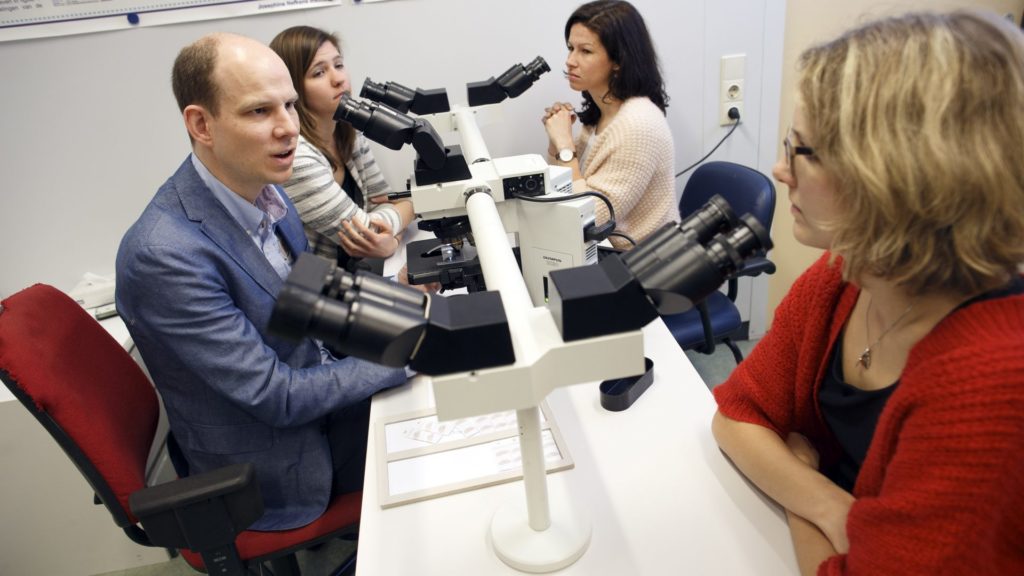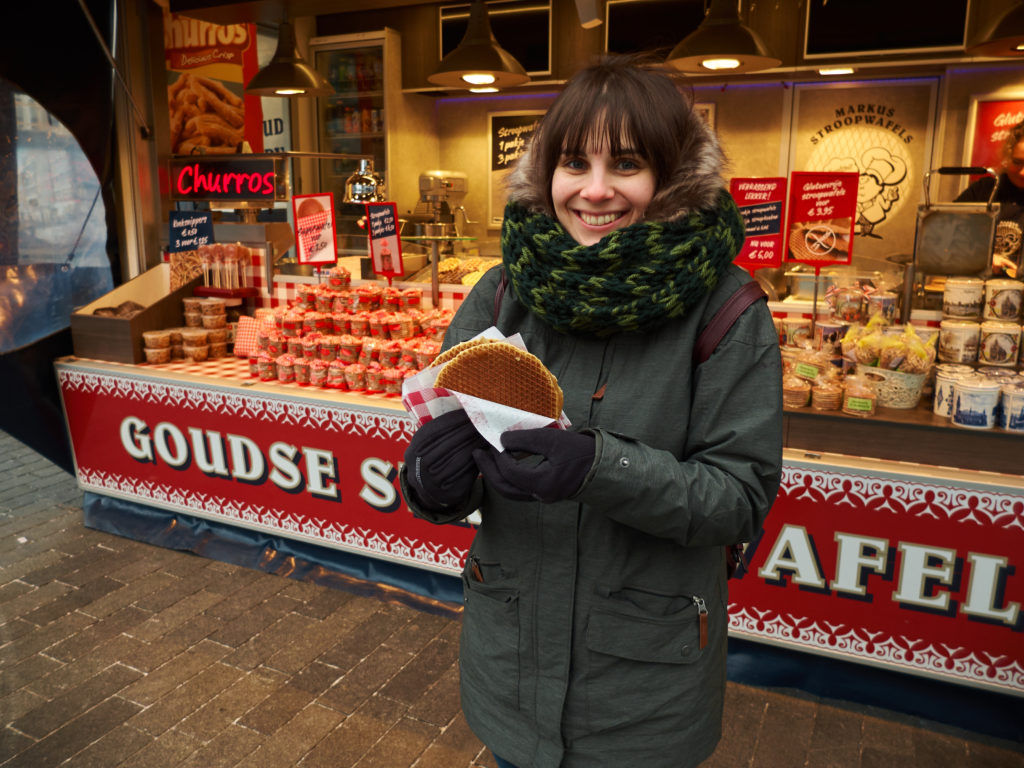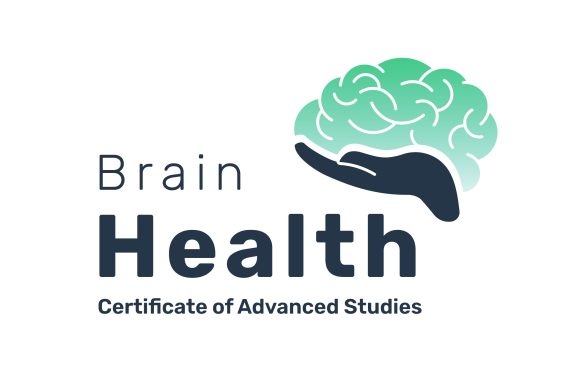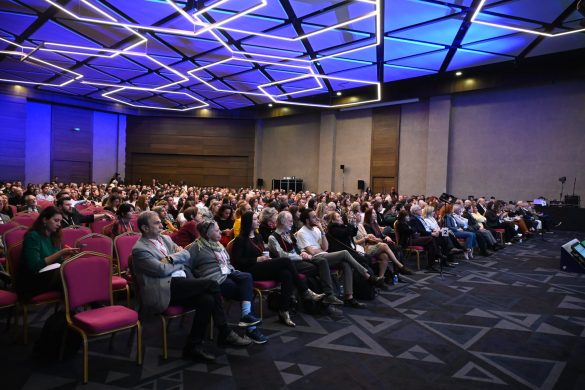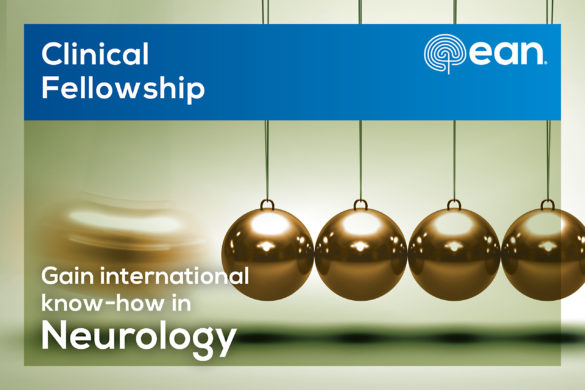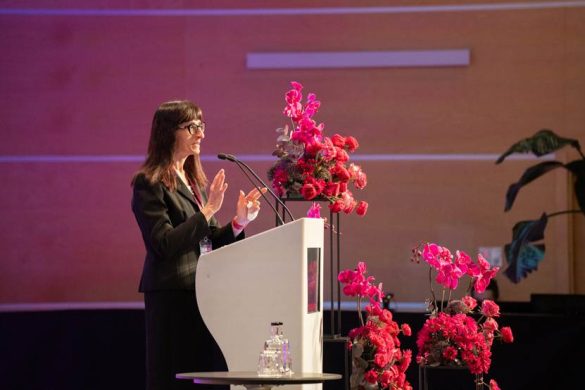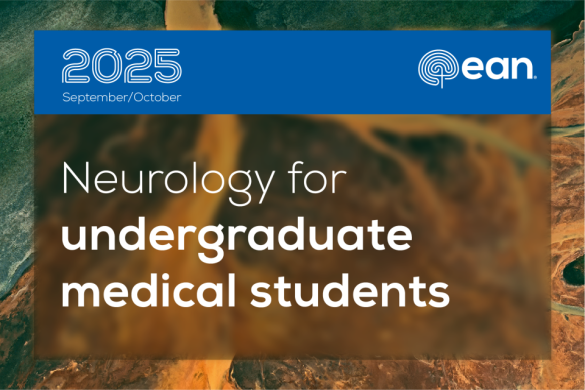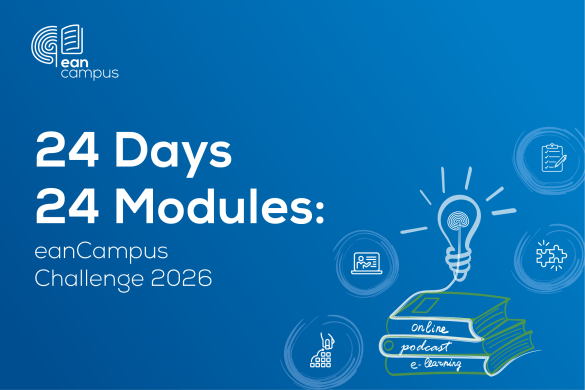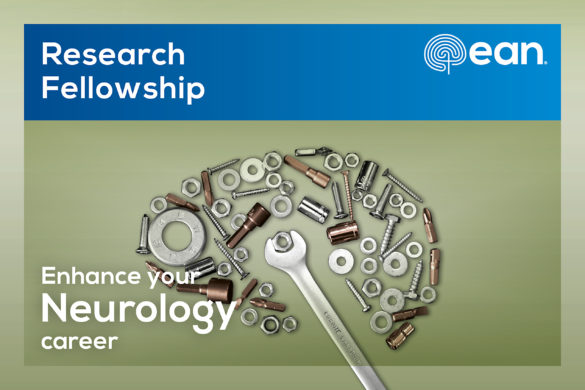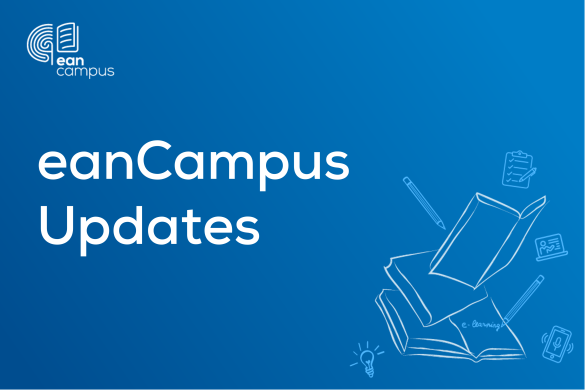by Amaia Muñoz Lopetegi
I am truly satisfied with the fellowship experience, which has been absolutely enriching for my professional and personal development as a neurologist, both in the clinical side and in research.
I am quite happy with the results we obtained in the research project, which has a fully translational nature, including detailed clinical descriptions and multiple lab-techniques that I needed to learn first.
It was also nice to work next to so many young researchers with a lot of promising projects and learn from their knowledge.
Overall, I have been able to learn:
- Clinical aspects of GAD-associated syndromes and various other autoimmune encephalitis: epidemiology, diagnosis and (multidisciplinary) management, among others.
- Interpretation of antibody results: clinical relevance, interpretation of techniques, results and comparison of serum and CSF.
- Laboratory techniques: cell-based assays, immunohistochemistry, live hippocampal neurons, transfections, immunoprecipitation
- Immunological knowledge: immunoglobulins, subclasses, B-cell v T-cell interaction
- Database management, data analysis and manuscript writing.
The number of patients included was higher than expected and preliminary results were both more interesting and more challenging than initially anticipated, so the project needed to be expanded. Within the time frame I was not able to also analyse cytokine results.
Apart from the strictly academic improvements, this fellowship has also provided me new skills and tools to confront clinical problems and that caused a positive change in the way I think of disease and medicine.
I would not like to finish without a mention to my mentor, Dr. Titulaer, his team, the Neurology Department and the Erasmus Medical Centre, The Netherlands. I was integrated in the activity since the very beginning and everyone helped and shared their knowledge and interests. Also, the hospital, used to dealing with international students and PhDs, provided all I needed in every moment.

